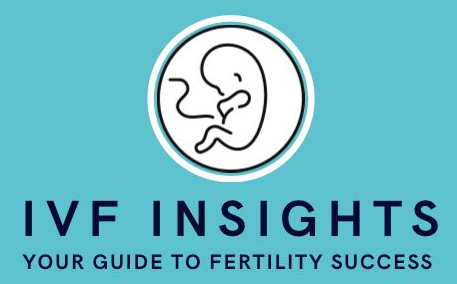
Comparing IVF, IUI and ICSI: What you should know
If you're reading this, chances are you or someone you know is struggling with infertility and looking for options to fulfill their wish to start or expand their family. We understand how difficult and emotional this journey can be, which is why we've created this informative guide to help you understand three of the most common fertility treatments: IVF, IUI, and ICSI. After reading this article, you'll have a better understanding of what these treatments involve, their success rates, costs, and risks, so you can make an informed decision with your healthcare provider.
You Might Also Like: IVF, IUI and ICSI: How To Optimize Chances For Success
What is Infertility?
First, let's define what we mean by infertility. Infertility is a medical condition that affects about
one in eight couples
of reproductive age. It is generally defined as the inability to conceive after one year of regular unprotected intercourse, or six months if the woman is over 35.
Infertility can be caused by a variety of factors, including hormonal imbalances, ovulation disorders, tubal or uterine abnormalities, male factor issues, genetic infertility, age or unexplained factors.

You Might Also Like: What's The Best Fertility Diet When Trying to Get Pregnant?
The differences in treatment
IVF
IVF, or In Vitro Fertilization, involves retrieving mature eggs from the ovaries, fertilizing them with sperm in a laboratory dish, and transferring the resulting embryos to the uterus.
IUI
In contrast, IUI, or intrauterine insemination, is a
less invasive
procedure. It involves placing washed and prepared sperm directly into the uterus using a catheter, timed with ovulation to increase the chances of fertilization.
ICSI
Lastly, we have ICSI, or intracytoplasmic sperm injection. This technique is similar to IVF, but it involves injecting a single sperm directly into each egg using a microneedle.
In general, these are the differences in its process of the 3 treatments.
The differences in Success Rates
IVF
IVF has relatively
high
success rates, especially for younger couples without underlying medical issues. According to the Society for Assisted Reproductive Technology (SART), the success rate for IVF cycles using fresh embryos can range from 40 to 50 percent for women under 35, but it drops to around 20 percent for women over 40.
Factors like egg and sperm quality, the woman's age, the number of embryos transferred, and any underlying medical conditions can all impact the success rates.
IUI
Moving on to IUI, the success rates are generally lower than IVF. According to SART, the success rate for IUI cycles can range from 10 to 20 percent per cycle, depending on factors such as the woman's age, the cause of infertility, and the quality of the sperm.
ICSI
ICSI has similar success rates to IVF, with the success rate depending on factors such as the age of the woman and the quality of the embryos. According to SART, the success rate for ICSI cycles using fresh embryos ranges from 40 to 50 percent for women under 35, to around 20 percent for women over 40.
Generally speaking, these are the differences in success rates of the 3 treatments.

The differences in Costs
Please note that these are approximate average costs and can vary depending on individual clinics, treatment plans, and specific requirements.
The cost of fertility treatments can vary significantly depending on where you live and the specific clinic you choose.
IVF
In the United States, the average cost of one IVF cycle ranges from $12,000 to $15,000, excluding medications and additional procedures like embryo freezing or genetic testing. However, it's essential to note that insurance coverage for IVF varies widely, with some states and countries mandating coverage and others providing no coverage at all. It's important to check with your insurance provider and your clinic to understand what costs are covered and what you will be responsible for.
IUI
In comparison, the cost of IUI is generally lower than IVF. On average, an IUI cycle ranges from
$500 to $1,500 per cycle, excluding medications. Again, it's crucial to check with your insurance provider to understand the coverage they offer for IUI.
ICSI
ICSI is generally more expensive than IVF, with an average cost of around $12,000 to $20,000 per cycle, not including medications or additional procedures such as genetic testing.
Keep in mind that these costs can vary not only between states in the USA but also across different countries worldwide. It's essential to research and consult with your healthcare provider to understand the specific costs associated with these treatments in your region.
Generally speaking, these are the differences in costs of the 3 treatments.

The differences in Risks
Lastly, let's talk about the risks associated with these fertility treatments. Like any medical procedure, fertility treatments come with risks and potential side effects. It's important to be aware of these risks and discuss them with your healthcare provider.
IVF
For IVF, the risks may include ovarian hyperstimulation syndrome (OHSS), multiple pregnancies, ectopic pregnancies, and birth defects. However, it's essential to note that these risks are generally low, and your healthcare provider will take steps to minimize them.
IUI
In the case of IUI, the risks are relatively minimal. Some women may experience mild cramping or spotting after the procedure, but these side effects typically resolve on their own.
ICSI
For ICSI, the risks are
similar to those associated with IVF, including OHSS, multiple pregnancies, and birth defects. Your healthcare provider will guide you through the necessary precautions to minimize these risks.
Generally speaking, these are the differences in risks of the 3 treatments.
In conclusion, infertility can be a challenging and emotional journey, but there are many options available to help couples start or expand their families. IVF, IUI, and ICSI are three of the most common fertility treatments, each with their own benefits, costs, and risks. If you're struggling with infertility, we encourage you to talk to your healthcare provider. Remember, every individual's situation is unique, so it's crucial to consult with your healthcare provider to determine the most suitable fertility treatment for you.



